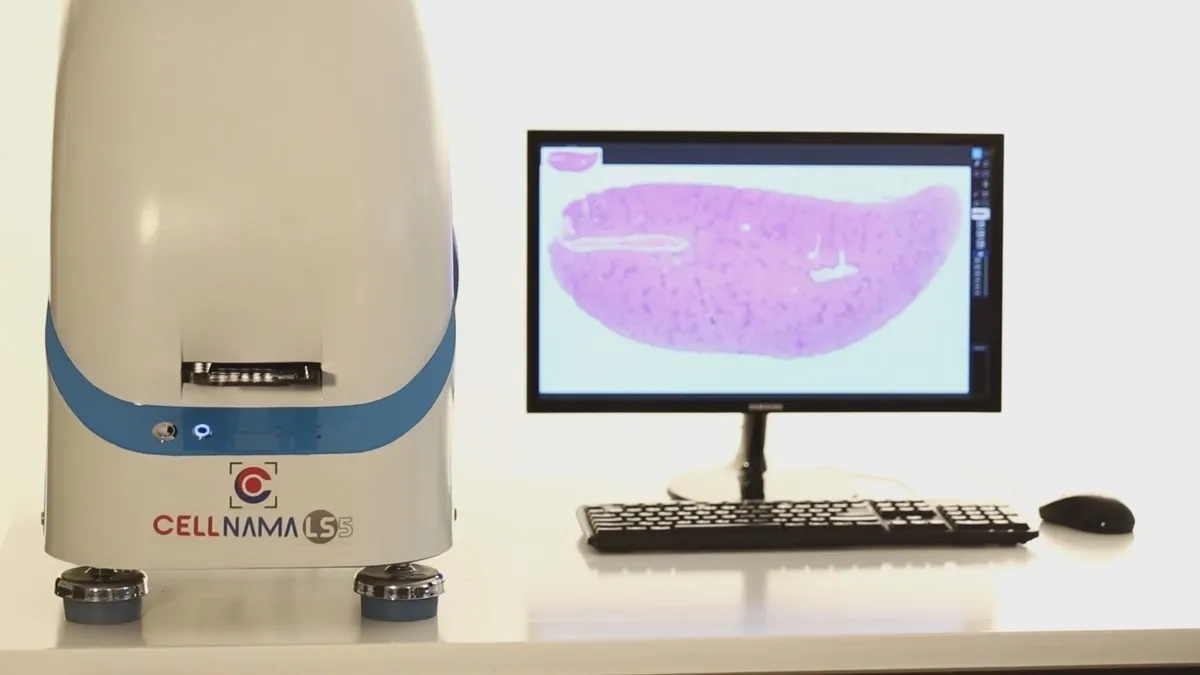Iran-Made AI-Based Slide Scanner Facilitates Imaging of Pathology Samples

The CELLNAMA brand is one of the products of the medical engineering department of the knowledge-based company and is the result of four years of efforts of elite Iranian experts in the field of smartization of medical and laboratory equipment.
Microscopic slide scanner or slide scanner is a system that can receive microscopic glass slides at the entrance and produce virtual slides by performing digital microscopic imaging of them.
A virtual slide is also a large digital image that is formed by attaching together smaller images in the form of a mosaic. A slide scanner should be able to automatically scan all types of microscopic slide samples (pathology, biology, hematology, cytology, parasitology, toxicology, tissue microarrays, botany, etc.)
In order to meet all kinds of research and diagnostic needs and eliminate the need for an analog microscope in the laboratory, a suitable slide scanner should also play the role of a motorized microscope equipped with a camera. Using its unique artificial intelligence, the CELLNAMA slide scanner is able to meet these needs at the highest level of quality.
Slide scanner produces virtual slides by digital imaging of glass slides in the shortest possible time (about 10 seconds).
In fact, a virtual slide is a large digital image that is formed by stitching together smaller full-focus images. Using artificial intelligence and image processing, the CELLNAMA slide scanner connects small images taken from the surface of the slide and creates a digital image with a resolution of 15 to 100 mega pixels of the sample surface.
CELLNAMA telepathology system provides users with practical and reliable tools, methods and frameworks for sharing virtual slides based on the existing communication platforms which exist in developing countries.
Earlier, last December, an Iranian technological company had also been able to meet the needs of the country’s industries by indigenous production of micro-CT scanners.
“Micro-CT LOTUS-NDT scanner is commonly used in industries. The resolution of the device is better than 2 microns and it is used in oil, metallurgy, mining and other industries,” Chairman of the Board of Directors of Matin Behin Negareh Imaging Technology Company Kamran Gholami said.
“For instance, in oil industry we have a process to examine cores that are taken out of the ground to identify oil pools. Many of these steps are destructive or remove a piece of the core that is no longer useful but our device has gone through these tests and works non-destructively. It prepares microplate samples from these cores and identifies the holes that exist inside the stone,” he added.
Gholami said that the Iran-made micro-CT device has no domestic counterpart and its production has prevented imports to the country.
4155/v





















